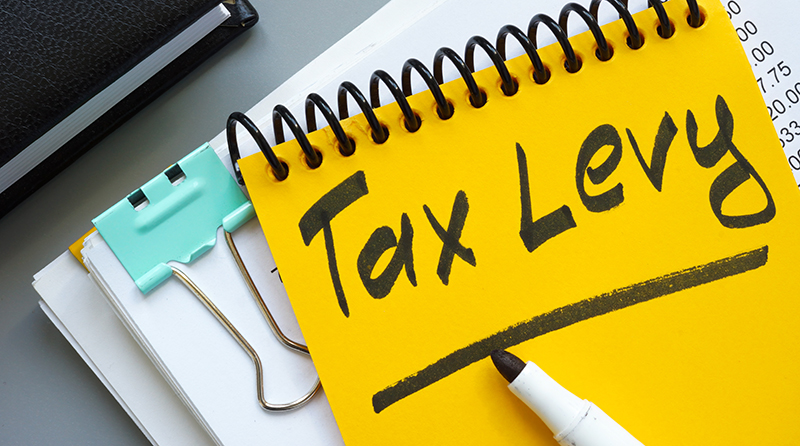IRS Tax Levies | What you Need to Know
November 27, 2024 by Charla Suaste
IRS levies can have a devastating effect on any person – whether they are filing as an individual or as part of a business. In this blog, we’re going to discuss the impact of these levies and steps you can take to get such levies released.
What is a levy?
A levy is when the IRS is permitted by law to garnish someone’s wages, bank accounts, property (such as a house or car), investments, etc. to satisfy a tax debt they believe they are owed.
Why would someone get a levy?
A levy is issued after the IRS makes multiple attempts to contact the taxpayer about an outstanding tax debt and they have not received a response, or they believe the taxpayer has not tried to satisfactorily pay their tax debt.
What does the levy process look like?
Let’s say you owe the IRS $50,000. They’ve sent you multiple notices letting you know of this amount due, but you’ve been too scared or overwhelmed to deal with them – so you ignored the notices. The IRS’ next step will be to issue a CP504, Final Notice of Intent to Levy. This notice also includes information about steps you can take to avoid having a levy imposed, such as requesting a Collection Due Process hearing or paying off your debt using an alternative method. If you ignore this notice as well, the IRS will send the levy notice to your bank or third-party vendor, letting them know about the levy. The bank (or other institution) then has 21 days before they are required to start forwarding these funds to the IRS. These could be your wages (sometimes referred to as garnishment), any money in your bank account, or even Social Security benefits (although the IRS can only legally levy up to 15% of Social Security benefits). Usually, the bank or third-party vendor will inform you that they have received the levy notice from the IRS, and let you know they must legally comply with the request to withhold or withdraw funds from your account.
What next steps can I take?
First, it is important to note that anytime you receive any letter from the IRS, you need to read these letters and, when necessary, respond as soon as possible. In this example, if you have reached the point of an IRS levy, you need to contact the IRS immediately to let them know that you are taking the matter seriously. Even if you cannot pay the full amount, you can let them know you are willing to enter into an agreement with them to resolve the tax debt. This may help the levy be released and put control back into your hands.
However, if and when possible, what we really recommend doing is reaching out to a qualified tax professional to determine what the next steps in your case should be. This individual can determine whether you're in compliance with all your filing requirements, examine your income and documentation to determine what you actually owe the IRS, and see if you may qualify for any type of tax relief. Just because the IRS has issued these notices does not always mean the tax debt you owe is correct. A qualified tax professional can help determine what your next best step is, whether that is appealing the IRS’ decision or entering into an installment agreement. We never recommend paying the IRS without having a second set of eyes look at your documentation and determine if the amount owed is correct.
That is where TaxAudit’s Tax Debt Relief team comes in. We work with taxpayers just like you who are feeling overwhelmed by their tax debt and don’t know where to start. We are so confident in our ability to assist you that we offer a free, no-obligation consultation where you can chat with one of our tax professionals and evaluate possible next steps. We have assisted thousands of taxpayers over the years and feel confident in our ability to assist you, no matter what type of tax issue or debt you are facing.
If you’d like more information or want to get started, you can find more information on our website here. We are standing by and ready to help!






